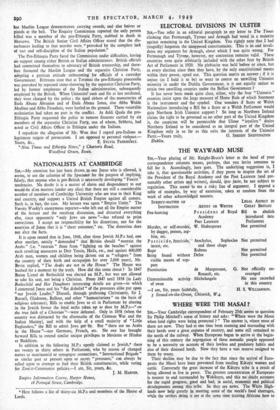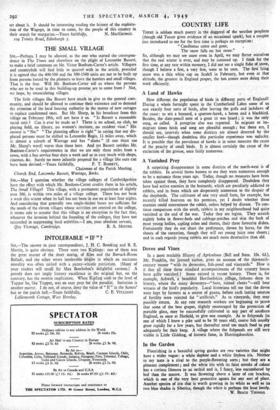WHERE WERE THE MASAI ?
Sta,—Your Cambridge correspondent of February 25th seems to question Sir Philip Mitchell's sense of history and asks: " Where were the Masai when land rights were being protected ? " The answer is, where most of them are now. They had at one time been roaming and marauding with their herds over a great expanse of country, and some still remained to the north of the railway. When Europeans began to arrive at the begin- ning of this century the segregation of these nomadic people appeared to be a necessity on account of their lawless and predatory habits and also of their diseased herds. Now they have a vast reserve assigned to them by treaty.
Their decline may be due to the fact that since the arrival of Euro- peans the Masai have been prevented from- stealing Kikuyu women and cattle. Conversely the great increase of the Kikuyu tribe is a result of being allowed to live in peace. The greatest concentration of Europeans is nearest to and surrounded by Wakikuyu, and this no doubt accounts for the rapid progress, good and bad, in social, economic and political developments among Ads tribe. So they are news. The White High- lands now help greatly in meeting some of the world's food shortages, while the settlers doing it are at the same time training Africans how to
set about it. It should be interesting reading the history of the exploita- tion of the Wagogo, in time to come, by the people of this country in
their search for margarine.—Yours faithfully, N. MACGEORGE. 109 Trinity Road, Edinburgh 5.







































 Previous page
Previous page